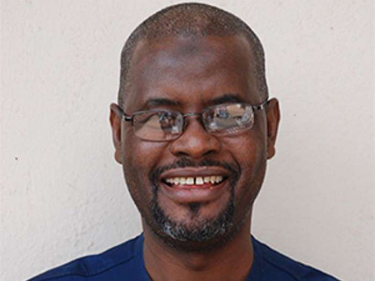ABUJA
Nigeria has received over $1.1 billion for HIV intervention from Global Fund, the director-General, National Agency for the Control of AIDS (NACA), Dr Gambo Aliyu, has said.
Aliyu made this known in Abuja recently during the presentation of publication entitled: From the Darkest of Days to a New Dawn, by NACA, United Nations, Network of People Living With HIV and AIDS (NEPWHAN) and Federal Ministry of Health.
He said the funds made the country the largest recipient of HIV funding, which would span last year to next year.
Aliyu urged stakeholders to ramp up domestic funding for HIV, especially as international funding is dwindling.
According to the NACA chief, the publication was based on the evolution of HIV in Nigeria over the past 35 years.
“The quicker we begin to look at domestic financial sustainability, the better for Nigeria because we do not expect donor support to continue forever. Nigeria has the largest global fund portfolio in a single country with over $1.1 billion for last year to 2023 implementation. We have also had increased domestic HIV financing with 50,000 additional ART yearly using the government of Nigeria’s resources and the establishment of the HIV Trust Fund,” said Aliyu.
He added that the new dawn was a rich inventory of insights and great lessons to guide health workers, researchers and policy makers in addressing Nigeria’s unfinished business in HIV/AIDS and close the unmet HIV treatment needs among women, children and men.
The United States Ambassador, Mary Beth Leonard, said that the event marked such an incredibly and important moment to reflect on how far the nation have come in the past 35 years.
“We remember in the 1980s when we never thought that there would be a world in which you will be free from HIV; in which it would be a manageable disease. Through the efforts of so many people – partners like the United States, Global Fund, Nigerian government agencies, activists, civil society – we all worked together and came up with systems, data and outreach that has brought Nigeria now credibly within months of epidemic control,” said Leonard.
She described it as incredible achievement and a proud moment for the United States as a major partner and beneficiary of some $6 billion since 2003, to reflect on what it was that people of good will and resources and good plans could accomplishtogether.
The UNICEF Country Representative, Peter Hawkins, said the book does very well to help in understanding the great achievements Nigeria has made over the years, saying no child should be born with HIV.
“. We must also integrate HIV treatment in the public health architecture of the country, especially in the primary health care (PHC) system. We must invest in PHCs which is the entry point to care. Domestic investment in the PHC system is integral ,” he stressed.
According to the Minister of State for Health, Dr OlorunnimbeMamora, “The presentation of the publication is timely because we are a few miles to the UNAIDS 95-95-95 target. It would provide a platform for us to build on.”
The Secretary to the Government of the Federation (SGF), Boss Mustapha, represented by the Permanent Secretary General Services Office, Maurice Nnamdi, said: “Thirty-five years is a long journey, and without the commitment of the PLHIV, this day would have been a mirage.
He explained that through the collection of articles, spanning 35 years of Nigeria’s efforts towards eradicating HIV, the AIDS indicator and impact survey for response were adapted to responding to COVID-19 and that the lessons from HIV response were adopted to combat COVID-19.
Mustapha assured that the federal government was committed to improving the health of Nigerians and achieving SDG 3.
“Nigeria is committed to combating the barriers to accessing HIV treatment,” he added.





Discussion about this post